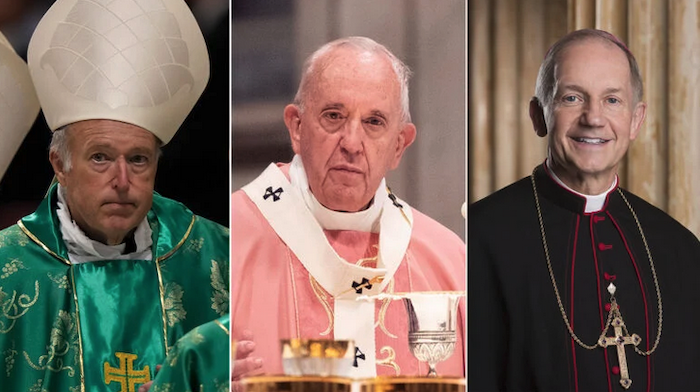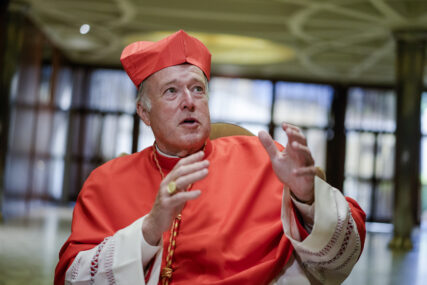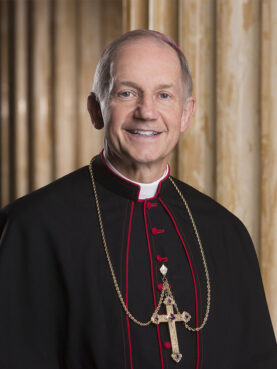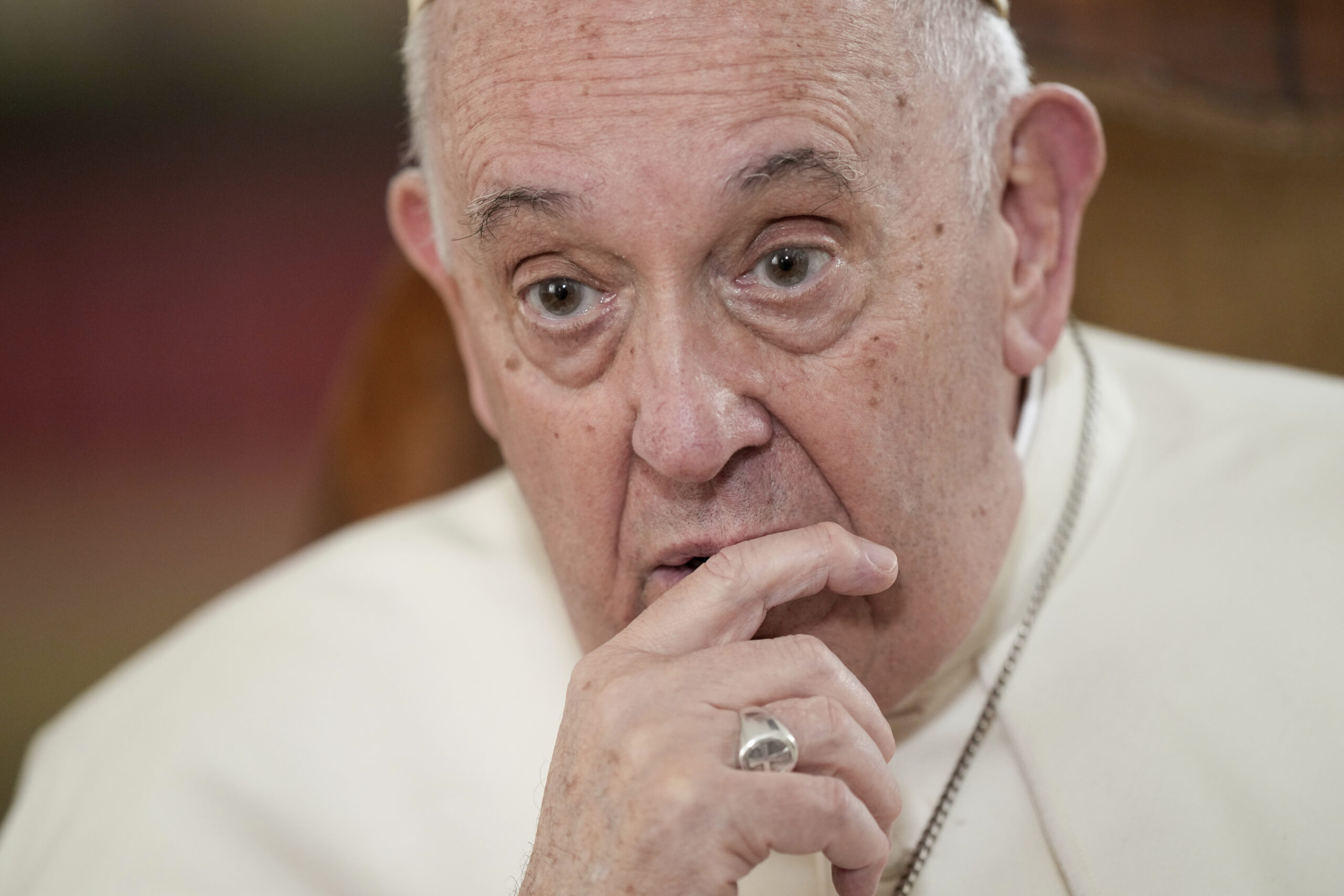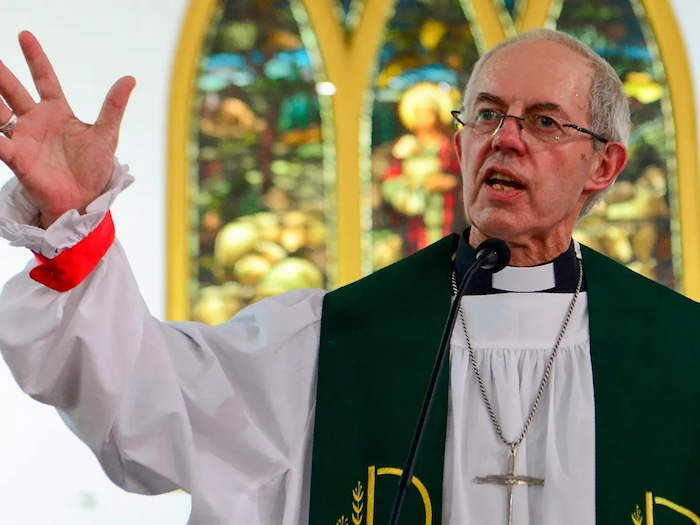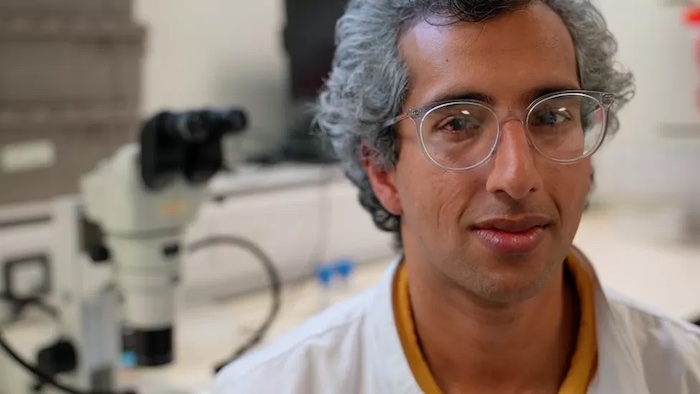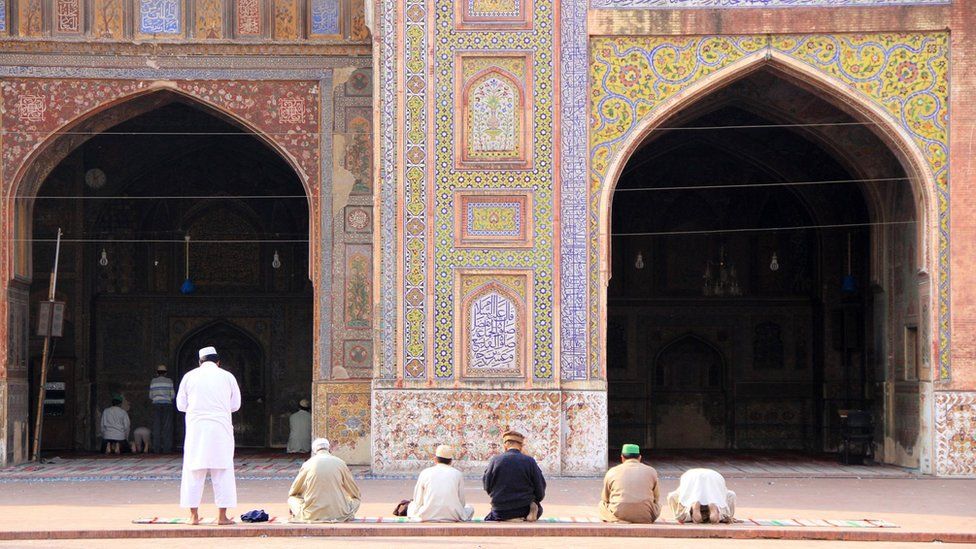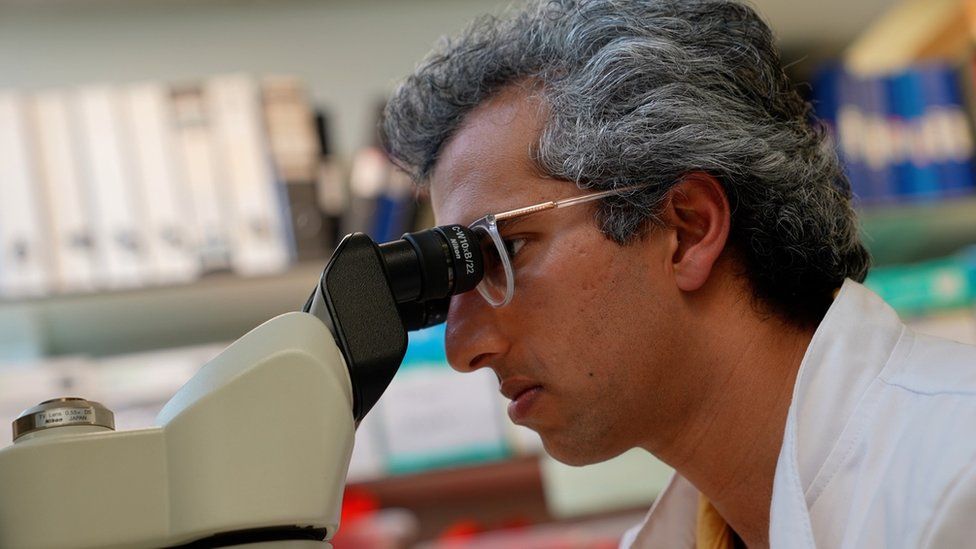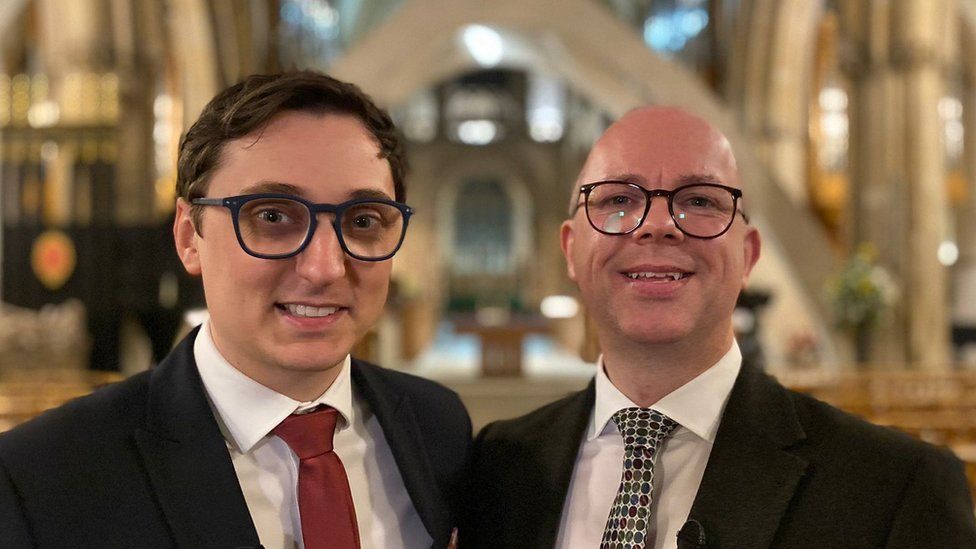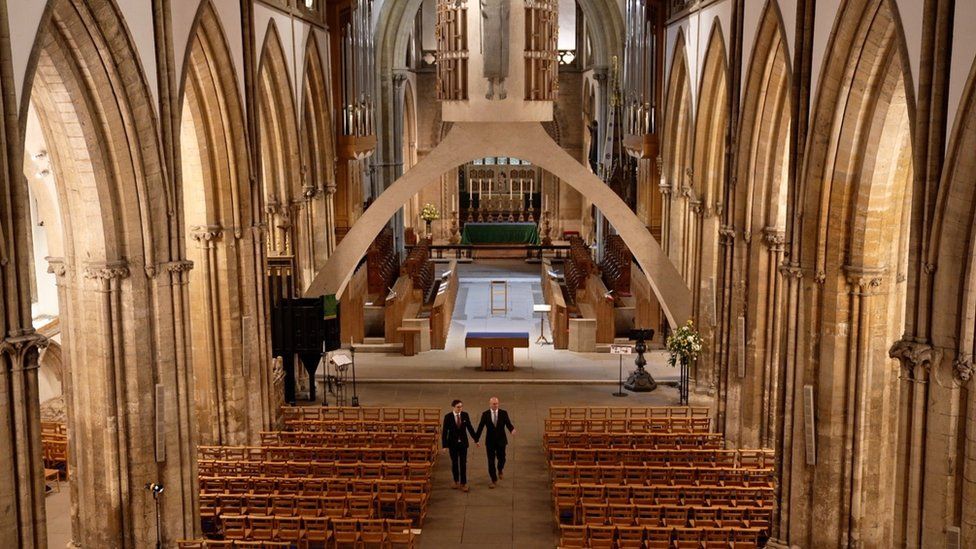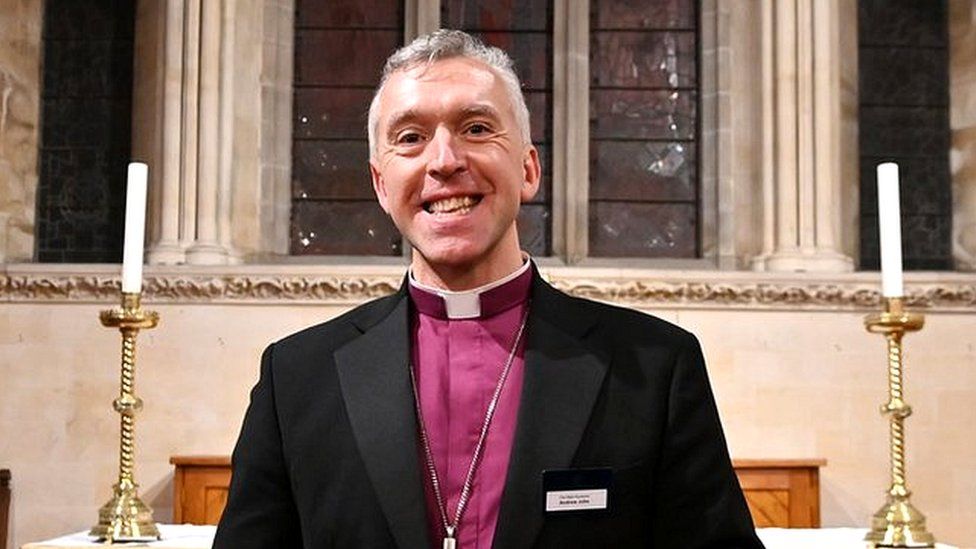
By Gina Christian
Pope Francis has evoked both praise and protest for his outreach to LGBTQ persons during his decade-long papacy, as he has offered warmth and welcome while upholding the Catholic Church’s teaching on human sexuality.
“My experience of Pope Francis has been hope-filled and also frustrating,” Ish Ruiz, a gay theologian and post-doctoral fellow in Catholic studies at Emory University, told OSV News.
Ruiz praised Pope Francis’ “breakthrough papacy,” which he said has helped remove barriers between the Catholic Church and LGBTQ persons.
At the same time, Ruiz told OSV News he “wishes the pope would go a little bit further with what he’s done” and “allow church doctrine to be transformed by the grace-filled witness” of LGBTQ persons.
Grace Doerfler, a graduate student in journalism at Stanford University, told OSV News that “as a lesbian Catholic, I think (Pope Francis is) really a pastor. … He has such an attitude of welcome, kindness and love, and I think his papacy has made a real difference in how I and other LGBTQ Catholics feel about the church, and about staying (in it).”
Yet Doerfler also said she “would love to see a church where I could have a church wedding someday, and where Catholic school teachers and other people in ministry could be openly gay and not lose jobs over it.”
Since the early days of his papacy, Pope Francis has offered an open hand to persons experiencing same-sex attraction and gender dysphoria, and recently condemned the criminalization of homosexuality in several parts of the world.
Asked by a reporter in 2013 about homosexual individuals among the clergy, the pope famously responded, “If someone is gay and he searches for the Lord and has good will, who am I to judge?”
For Matthew — now a married father of two in the St. Louis area who asked his last name be withheld for privacy — that reply coincided with a growing awareness that he was sensing homosexual inclinations, which along with homosexual acts are regarded as “disordered,” according to church teaching as outlined in the Catechism of the Catholic Church.
“The 10-year anniversary of Pope Francis really resonates with me, because I was a freshman in college exactly when I started to realize my experience,” he told OSV News. “This 10-year journey is very much my timeline of my first (recognition) and then realizing the beautiful grace (of) the Lord in my life.”
While stressing he remains “respectful” of the pope, Matthew told OSV News he wanted to “be real” about how Pope Francis’ approach to the topic of homosexuality “has hindered me.”
Specifically, Matthew pointed to “ambiguity and lack of clarity” in reports of the pope’s occasional statements to media on the subject, which he told OSV News could be misconstrued as support for same-sex unions.
Evgeny Afineevsky’s 2020 documentary “Francesco” created an uproar when spliced clips from a 2019 interview with Mexican broadcaster Televisa appeared to show Pope Francis broadly endorsing legal protections for such civil unions, while defending church doctrine that made it “a contradiction to speak of homosexual marriage,” said the pope.
Subsequent media coverage showed the film had not included key contextual information and caveats made by the pope in addressing the topic with journalist Valentina Alazraki.
Struggles to accurately understand Pope Francis on the topic of homosexuality often result from a failure to appreciate the fullness of his pastoral outreach to LGBTQ persons, said Father Philip Bochanski, a priest of the Philadelphia Archdiocese and executive director of Courage International, a Catholic apostolate that supports same-sex attracted men and women in living chastely according to church teaching.
Pope Francis’ approach seeks “to receive the person and accompany them mercifully, and having heard and received their story, to orient them in the teaching of the church,” Father Bochanski told OSV News. “It would be too simplistic to say that this pope says, ‘homosexual acts are sinful’ or ‘who am I to judge?’ That’s overlooking much of what Pope Francis has said on this topic. He always refers people back to the catechism.”
In his apostolic exhortation “Amoris Laetitia” (“The Joy of Love”), Pope Francis summed up that perspective in two back-to-back passages, acknowledging the challenges same-sex attraction presents to both parents and children, and calling for “respectful pastoral guidance” while upholding church teaching that views same-sex unions as not “even remotely analogous to God’s plan for marriage and family.”
Above all, “Pope Francis has, through words and gestures, helped to open up the conversation around the Catholic Church and LGBTQ people,” said Jesuit Father James Martin, a consultor to the Vatican Dicastery for Communication who ministers extensively to LGBTQ persons.
Admitting that “many LGBTQ people in the West tell me that they wish (Pope Francis) would ‘go further,’” Father Martin told OSV News the pope’s outreach has “marked a sea change in the church’s approach to this community.”
Father Martin pointed out Pope Francis has even appointed Juan Carlos Cruz, an openly gay man who advocates for fellow survivors of clergy sex abuse, to the Pontifical Commission for the Protection of Minors.
“I don’t think we can underestimate how much more welcome LGBTQ people — and their families — feel in their own church, thanks to Francis,” said Father Martin.
The pope sees not ideologies but “individual people, and he wants to make some kind of path for them to come closer to God,” Eve Tushnet, author of “Gay and Catholic: Accepting My Sexuality, Finding Community, Living My Faith,” told OSV News.
In so doing, she added, Pope Francis provides a “desperately needed vision for some kind of good future” for LGBTQ persons in the church.
“The church has wisdom here,” said Tushnet. “The church gives guidance to shepherd these longings and desires, and a path by which they are made more chaste, and even more loving and giving, than your own desires.”
Complete Article ↪HERE↩!


